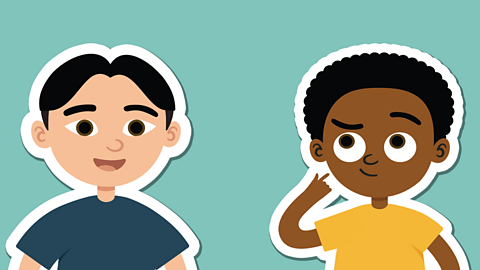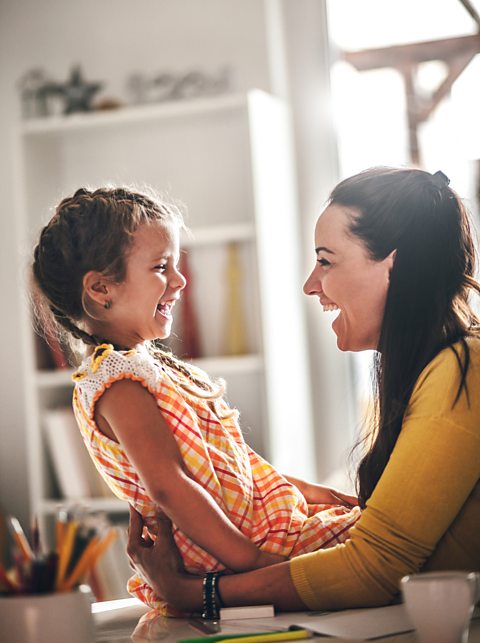
What do you like best, talking or writing?
If you have some problems with your spelling you might prefer to talk rather than write things down.
Talking and writing are two types of communication.
We talk and write to help people understand us better.
You might talk with your friends about your favourite game or what you did at the weekend.
You might talk with your mum or dad about how you are feeling. For example, you might tell them if you are hungry or tired or happy.

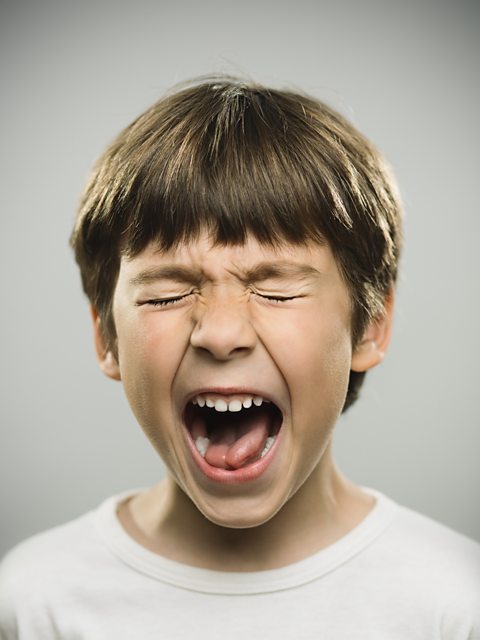
Different situations
How you talk at home and the words you use might be a bit different to the words you use when you are in school.
For example, you might say to your dad, ‘Dad, please hurry up, I’m late for school!’ But would you say this to your teacher? No, because what you say and how you say it depends on who you are talking to and the situation that you are in.
At a sports match it is okay to shout at the players on the pitch, but would you shout if you had to visit a doctor? No, you wouldn’t because when you visit a doctor you would have to speak clearly in a normal voice so that the doctor can understand what is wrong with you.

Words are made of sounds
When you talk, you usually don’t have to think too much about the correct words to use. That’s because you have learned to speak in our own language by listening to sounds and words when you were a baby.
Words are made by putting sounds together. Some sounds are loud and some are soft, some make you feel calm and some sounds can be a little frightening.
Some sounds in words are easy to hear and some are more difficult.
Maybe you struggled to say some words when you were a toddler.
A good example of this is the word ‘hos….pit…al’. Have you ever heard this word pronounced ‘hosk….able’? It is a tricky word to say!
You will also have heard words by listening to stories and watching cartoons or children’s programmes.
As you have become older, you use these words when talking without thinking how to pronounce them.

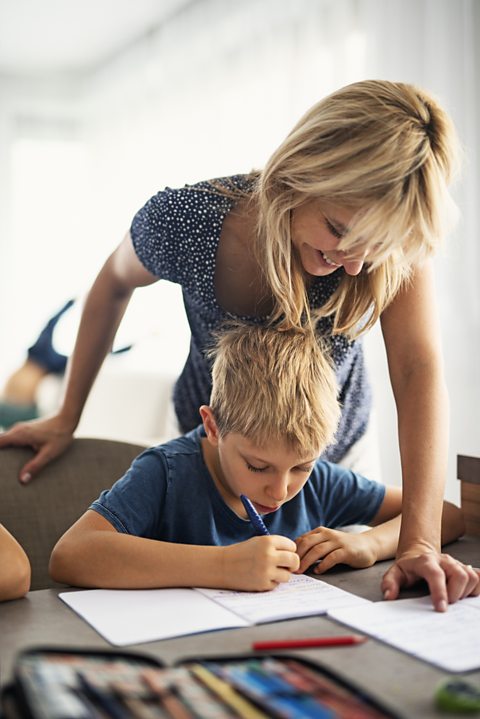
Learning to write
Writing is different from talking.
Someone had to teach you to write didn’t they? You had to learn how to make marks on a page first, we call this scribbling. Then those marks became letters.
You can probably remember learning all the letters of your name.
You also had to learn the correct way to draw these letters and this took lots of practice.
After that you had to put all the letters together in the right order to write your name. This is called spelling.
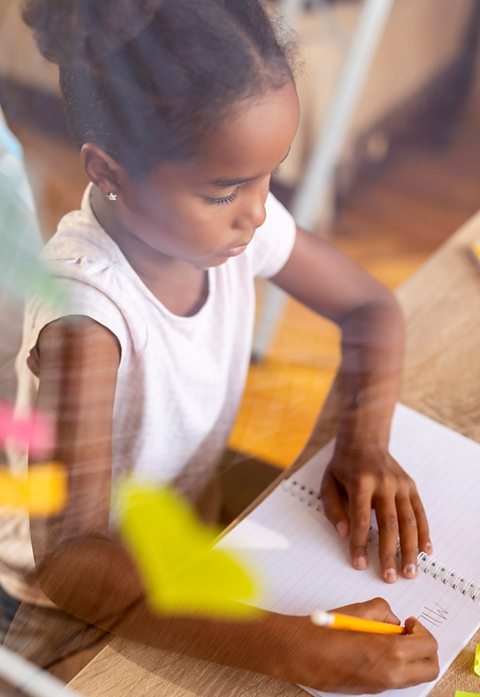
Words in the right order
Writing also equires you to put words in the right order.
For example, if I wrote, ‘Dog the loves the ball new’ would you understand this?
But if I wrote, ‘The dog loves the new ball’ you would know exactly what I meant.
This is because we have to use rules when we write and these rules are called grammar and punctuation.
Does your teacher ever remind you to start your sentence with a capital letter and end it with a full stop? This is called punctation.
Grammar rules are rules we use to make sentences and put sentences together in our writing.

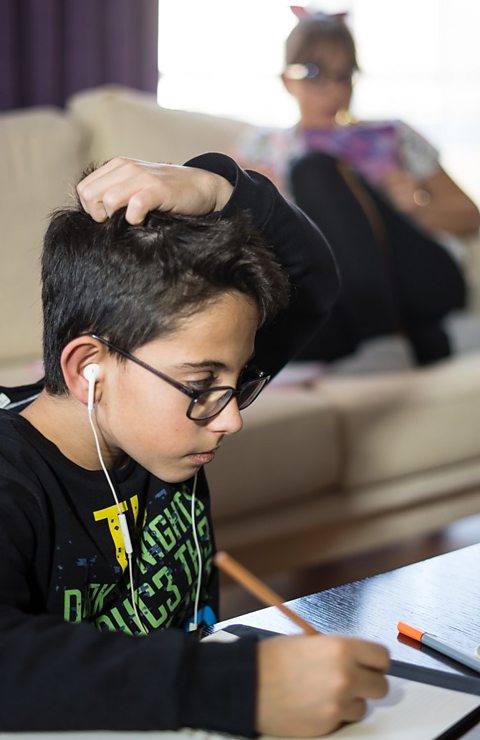
Choose your words
When you are writing, you also write in different ways and use different words.
If you are writing a joke you try to use words that will make the reader laugh.
If you are writing instructions you would use words that help the reader to understand how to do something.
When you want to show that someone is shouting you might write the words in CAPITAL LETTERS !
So the next time you talk or write, think about all the skills you have learned to help you do these things.
Director: Hey Brody! You’ll be doing a lot of speaking today. I need you to pass instructions to Carla, the stunt artist.
Brody: Carla, the mast is about to fall down.
Director: Cut! Brody! It’s no good mumbling. Carla couldn’t hear what was about to happen.
Brody: Carla, you might want to move, they’re about to fire the cannon.
Director: Brody, if you whisper, Carla won’t be able to hear you!
Brody: SHARK! WALK THE PLANK! JUMP!
Director: Cut! She was meant to jump the other way! Brody, try not to shout, you’re making her nervous. And use words she’ll understand.
Brody: Get ready to jump.
Director: Nod to tell her when the crash mat is in place. Look at her facial expression, does she look worried?
Carla: Ahhhh!
Director: Cut! We’re going to need another stunt person.
When you're speaking, talk clearly and loudly enough for the other people to hear.
Remember to use words everyone will understand.
More on Talking and listening
Find out more by working through a topic
- count6 of 11
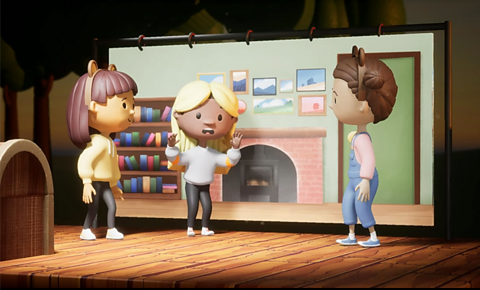
- count7 of 11
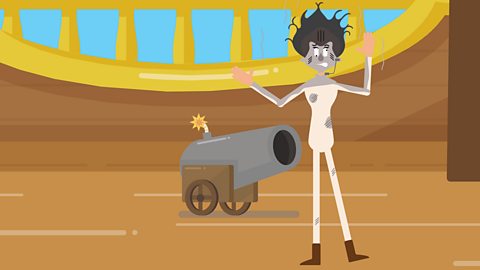
- count8 of 11
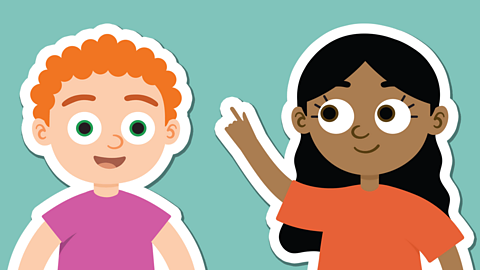
- count9 of 11
